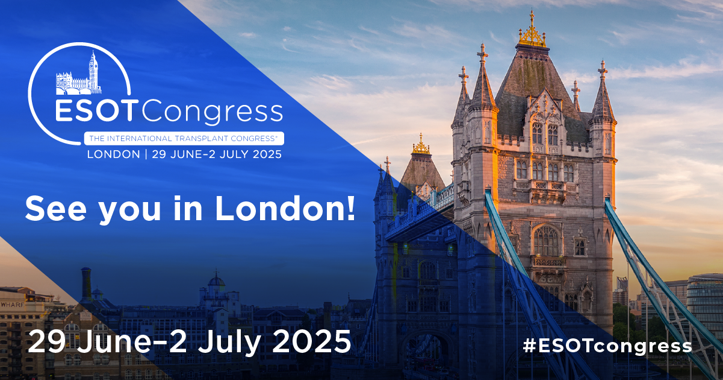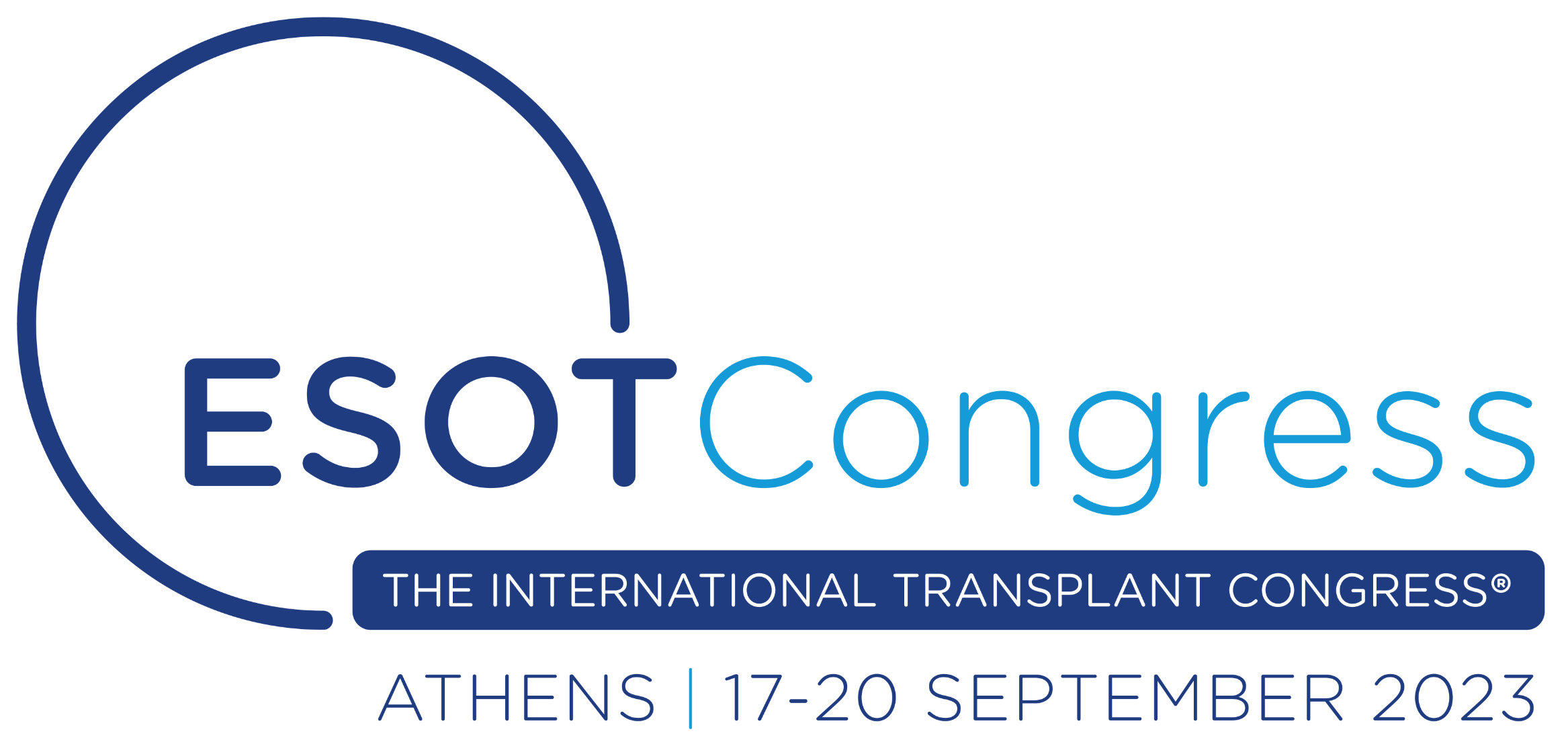Daily Recap: Day 4
Wednesday 20 September
Reflecting on the ESOT Congress 2023
Thank you for joining us at another successful ESOT Congress, this time in Athens, the birthplace of modern European civilisation.
Under the overarching theme of “Disruptive Innovation, Trusted Care,” we explored the impact of the pandemic and the digital revolution on diagnostics, lab science, and precision transplantation. We addressed organ shortages, perfusion technology, cell therapy, glimpsed into the future of xenotransplantation, and much more…
Throughout the congress, we emphasised patient-centric care and healthcare professional collaboration for shared decision-making, to align with our ultimate mission to enhance the lives of patients.
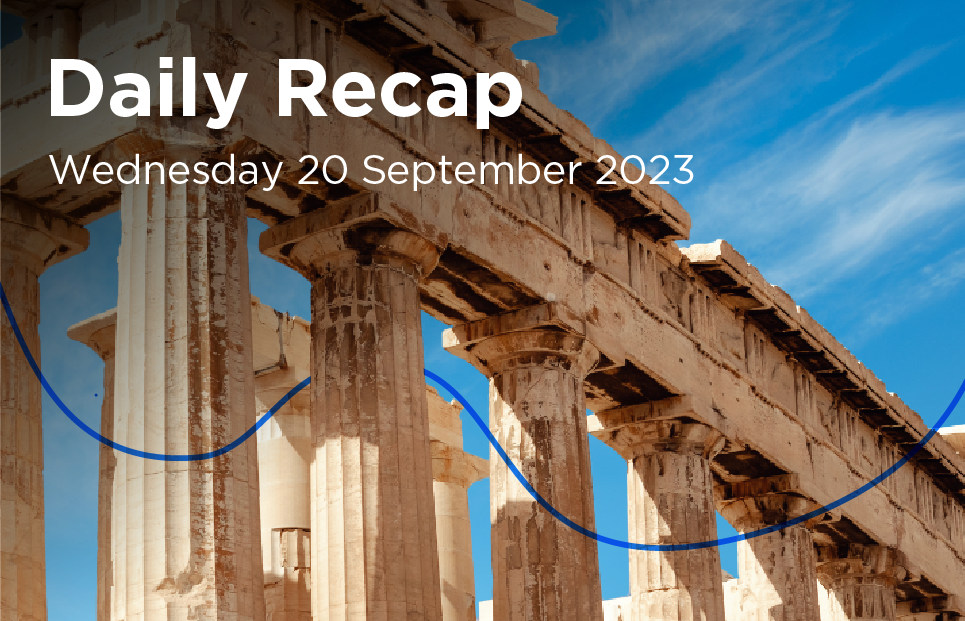
Session in the Spotlight
Xenotransplantation: Navigating Ethical Frontiers and Societal Impact
In this cutting-edge session last night, participants stepped into the world of xenotransplantation, a field that pushes the boundaries of medical science.
Alongside experts David Ayares, Matthias Kaiser, Jayme Locke and Eckhard Wolf, we delved into the developments and challenges of the field, and discussed the broader implications that accompany this ground-breaking technology. The panel was also joined by Penilla Gunther (Former Member of Swedish Parliament, Founder of FOKUS Patient) and Efstratios Chatzixiros (Adviser, Transplantation Human Organs-Tissues-Cells Blood and Other Products of Human Origin for WHO), who joined in the interactive discussion to offer their unique experiences in the field.
Moderated by Jacqui Thornton (health journalist), this session ventured way beyond the laboratory, delving into the heart of real-world considerations. Burning questions were answered, and we began to unravel the intricate web of decisions that lie ahead. Considering factors included equity of access, ethical dilemmas, societal consequences, and religious connotations.
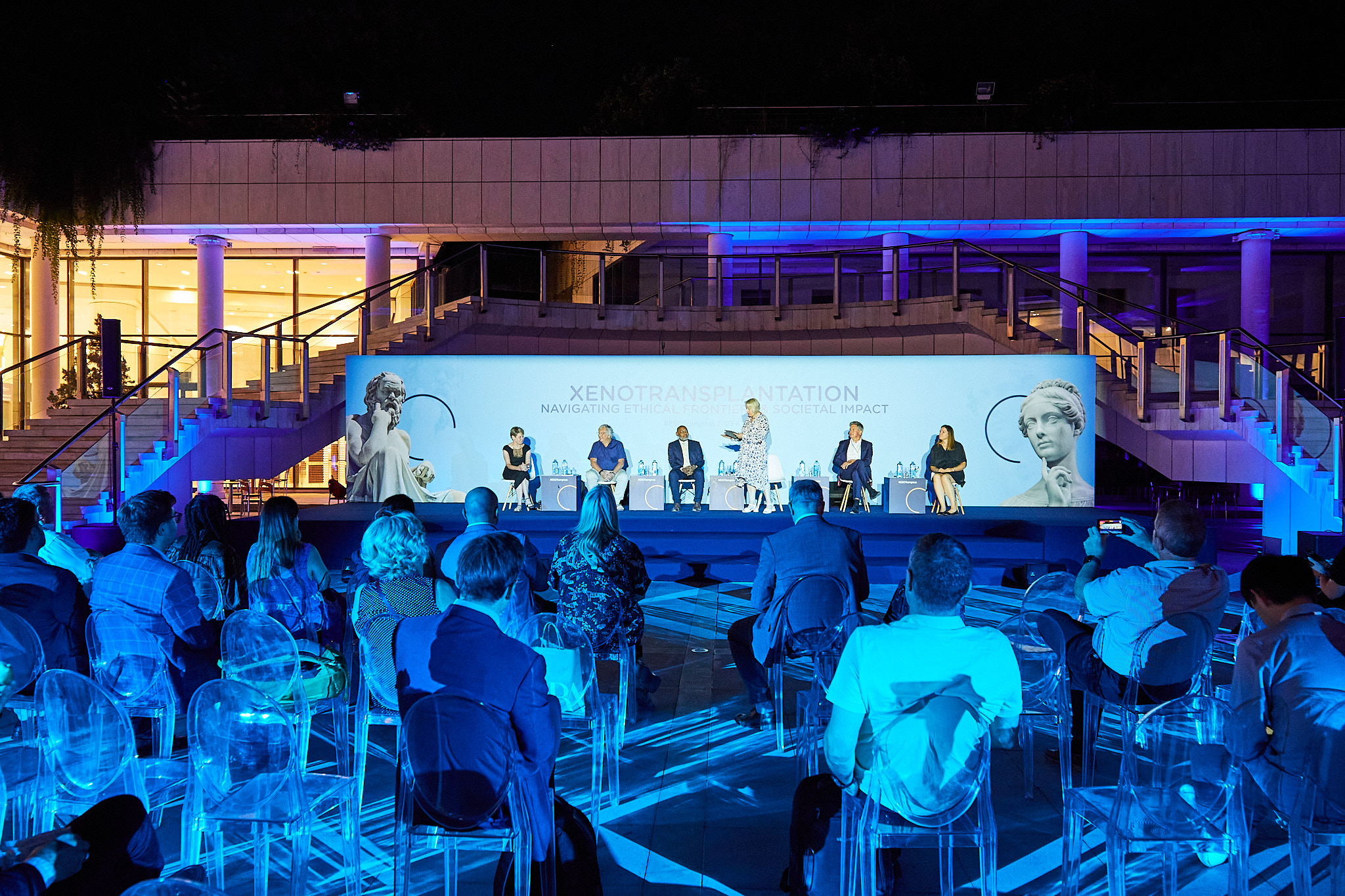
Leonardo Da Vinci Award
Recognising outstanding contributions to the fields of clinical and basic science research
On Monday, the nominees for the Leonardo Da Vinci Transplant Research Innovation Award presented their research during a dedicated session in front of an expert jury panel and live audience. Following their presentations, the nominees were asked a series of questions about their research, and the winners were selected based on the quality of their presentations and responses.
At the Closing Plenary Session this afternoon, the prestigious award was presented to both Elisabet Van Loon and Anna Christina Dragon for their significant contributions to their respective fields. Both winners were invited back on stage to re-present their award-winning research. In recognition of their outstanding achievements, they were awarded a €10,000 prize and an invitation to submit their work to Transplant International.
Elisabet Van Loon from Belgium was announced as the winner of the clinical research award for her presentation titled, ‘Clinical validation of automated urinary chemokine assays for non-invasive detection of kidney transplant rejection: a prospective cohort study.’ The basic science award was presented to Anna Christina Dragon from Germany for her presentation titled, ‘Engineered T cells overcoming rejection by antibodies (CORAT cells): selective targeting of alloreactive B cells in solid organ transplantation.’
ESOT would like to congratulate this year’s Leonardo Da Vinci Award winners on their exceptional research and thank them for their dedication to advancing the field.
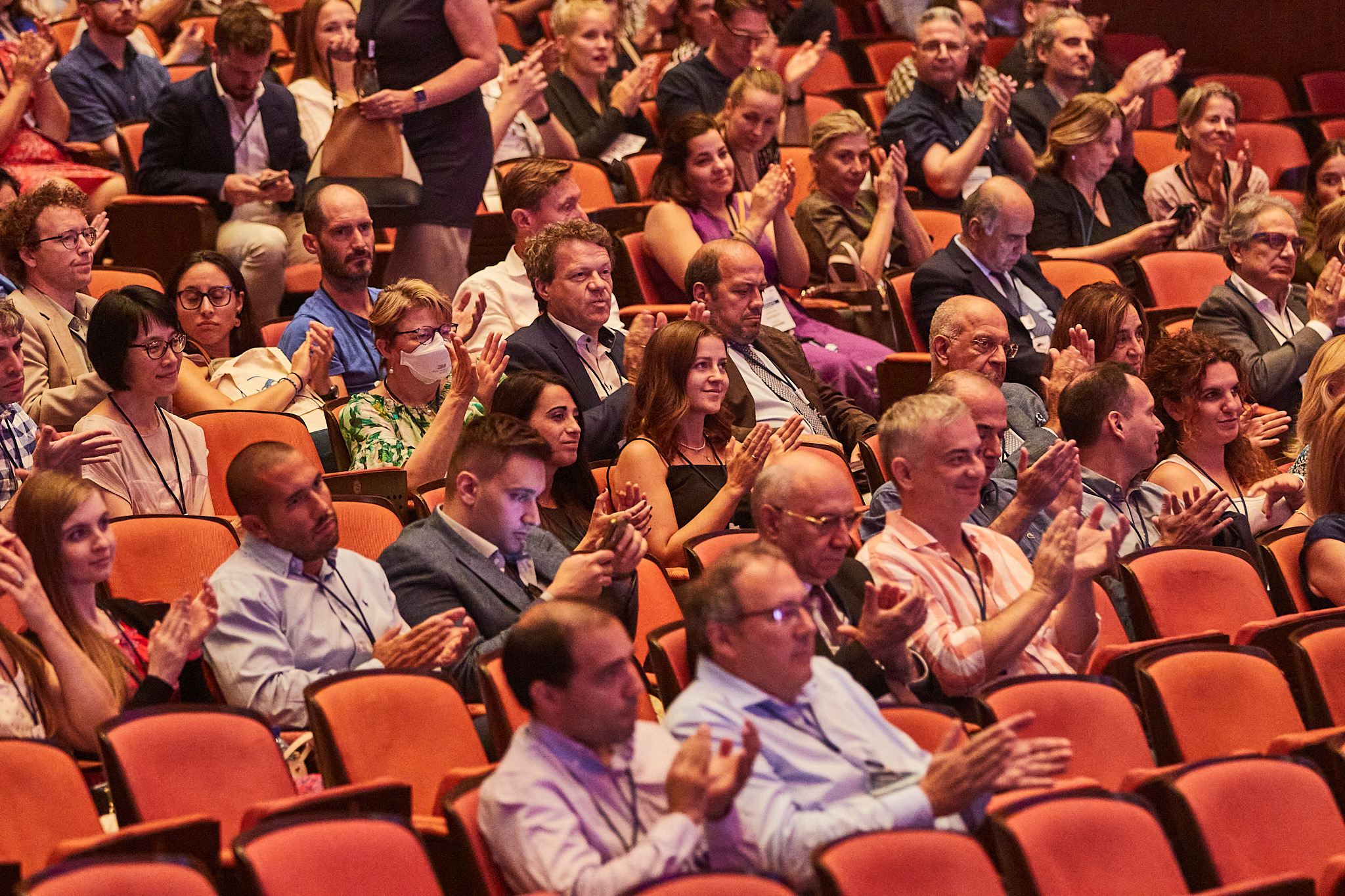
Scientific Highlight
Pre-specified blood biomarkers did not assist detection of kidney graft rejection in the large EU-TRAIN trial
In the large, prospective, multicentre EUropean TRAnsplantation and INnovation Consortium for Risk Stratification in Kidney Transplant Patients (EU-TRAIN) trial, none of the 24 pre-specified candidate blood biomarkers demonstrated additional clinical value in detecting kidney graft rejection.
Clinically validated, non-invasive biomarkers are needed to detect kidney graft rejection after transplantation. Investigators aimed to investigate the utility of 24 biomarkers, including 20 blood mRNA-based markers and four antibodies, in conjunction with routine medical care for detecting graft rejection. From November 2018 to June 2020, 412 consecutive kidney transplant patients across European centres were monitored for clinical, biological, immunological and histological parameters.
Comprehensive evaluation of these biomarkers in 816 biopsies revealed an overall rejection rate of 6.4% in the first-year post-transplant, with only one marker (CD4 mRNA) initially showing a significant association with rejection. However, upon adjusting for standard monitoring variables, none of the 24 biomarkers were found to be associated with antibody-mediated, T-cell mediates or mixed graft rejection.
Goutaudier V, et al. Detection of kidney allograft rejection using blood biomarkers: Results of the European multicenter prospective EU-train trial (NCT03652402). Presented at the ESOT Congress 2023; 20 September 2023; Athens, Greece.
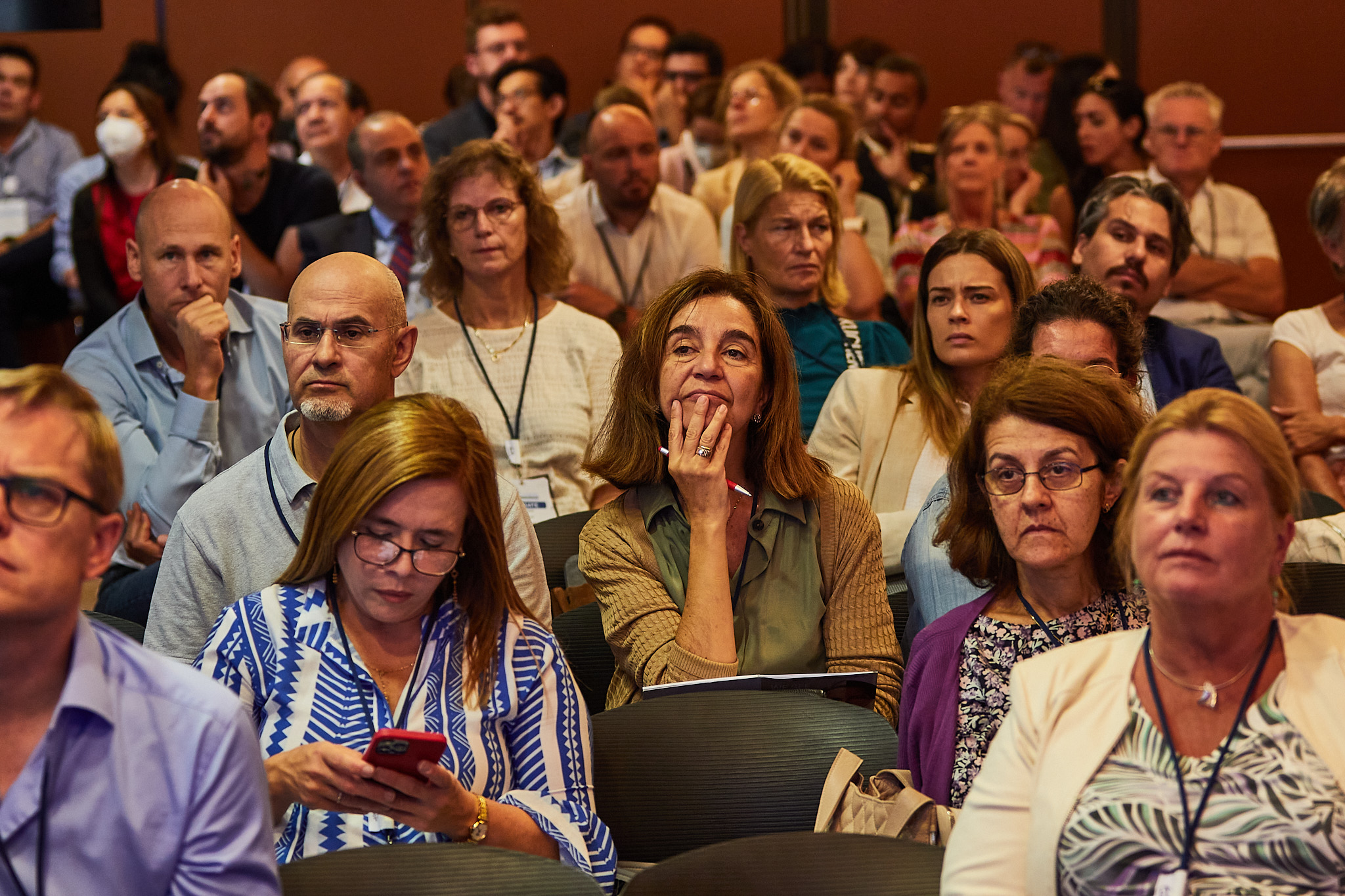
The ESOT Legacy Award
Celebrating remarkable achievements in organ, tissue and cell donation and transplantation
The ESOT Legacy Award celebrates individuals and organisations for their truly outstanding and sustainable achievements in the field of organ, tissue and cell donation and transplantation.
This esteemed award recognises long-term contributions across various domains, including research, clinical advancements, training, education and organisation and governance. The award winners were selected by the ESOT Council, the ESOT Executive and multiple representatives of patient associations for their efforts to transform countless lives and make a long-lasting impact on the field.
Congratulations to Maria Rosa Costanzo and Michael Nicholson, who were presented this award at today’s Closing Plenary Session. We thank you for the remarkable contributions that you have both made to advancing our field.
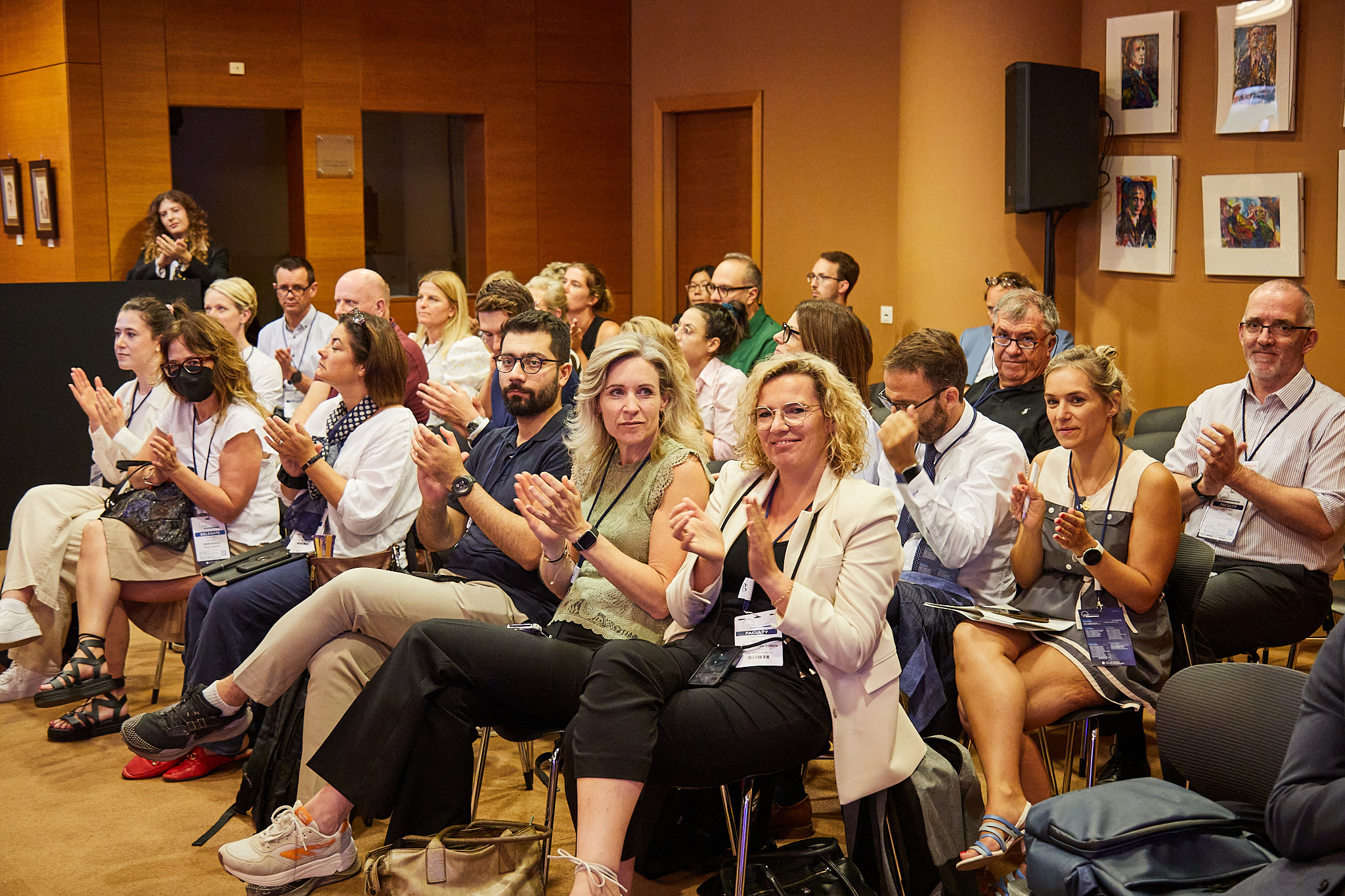
Scientific Highlight
Donor-derived cell-free DNA assisted prediction of kidney graft rejection after transplantation
A multicentre study has demonstrated the significant value of using donor-derived call-free DNA (dd-cfDNA) in predicting kidney graft rejection when used in conjunction with standard monitoring. Validated non-invasive biomarkers are needed for use in post-transplant care to improve graft monitoring, without the requirement for invasive biopsies. dd-cfDNA has demonstrated potential for this in previous research but had not been extensively validated in a large cohort of unselected phenotyped patients.
Between 2013 and 2018, the study enrolled 1134 kidney transplant recipients, resulting in a derivation cohort of 1415 biopsies. Plasma-derived dd-cfDNA levels were concurrently assessed with graft histology, anti-human leukocyte antigen donor-specific antibodies (anti-HLA DSA) and functional parameters. Using the Banff 2019 classification system, the study identified 171 antibody-mediated (AMR), 34 T-cell mediated (TCMR) and 17 mixed rejections. Univariable and multivariable logistical regression was used to assess rejection-associated parameters and a risk model was developed using variables independently associated with kidney rejection. The validation cohort included 1929 evaluations in total (499 from Belgium and 1430 from North America).
Higher dd-cfDNA levels we observed in cases of AMR, TCMR or mixed rejections compared to other diagnoses, with levels incrementally increasing alongside Banff acute lesions but not significantly with chronic lesions. Independent factors associated with rejection included anti-HLA DSA, dd-cfDNA, eGFR, proteinuria, and prior rejection history. This association remained valid for dd-cfDNA in both Belgian (P=0.0006) and North American (P<0.0001 validation cohorts.
The predictive model demonstrated improved discrimination performance when dd-cfDNA was included, with a higher area under the curve (AUC). This added predictive value of dd-cfDNA was consistently validated in both Belgian (AUC 0.815) and North American (AUC 0.826) cohorts.
Ursule-Dufait C, et al. Multidimensional risk assessment of kidney allograft rejection using donor-derived cell-free DNA. Presented at the ESOT Congress 2023; 20 September 2023; Athens, Greece.
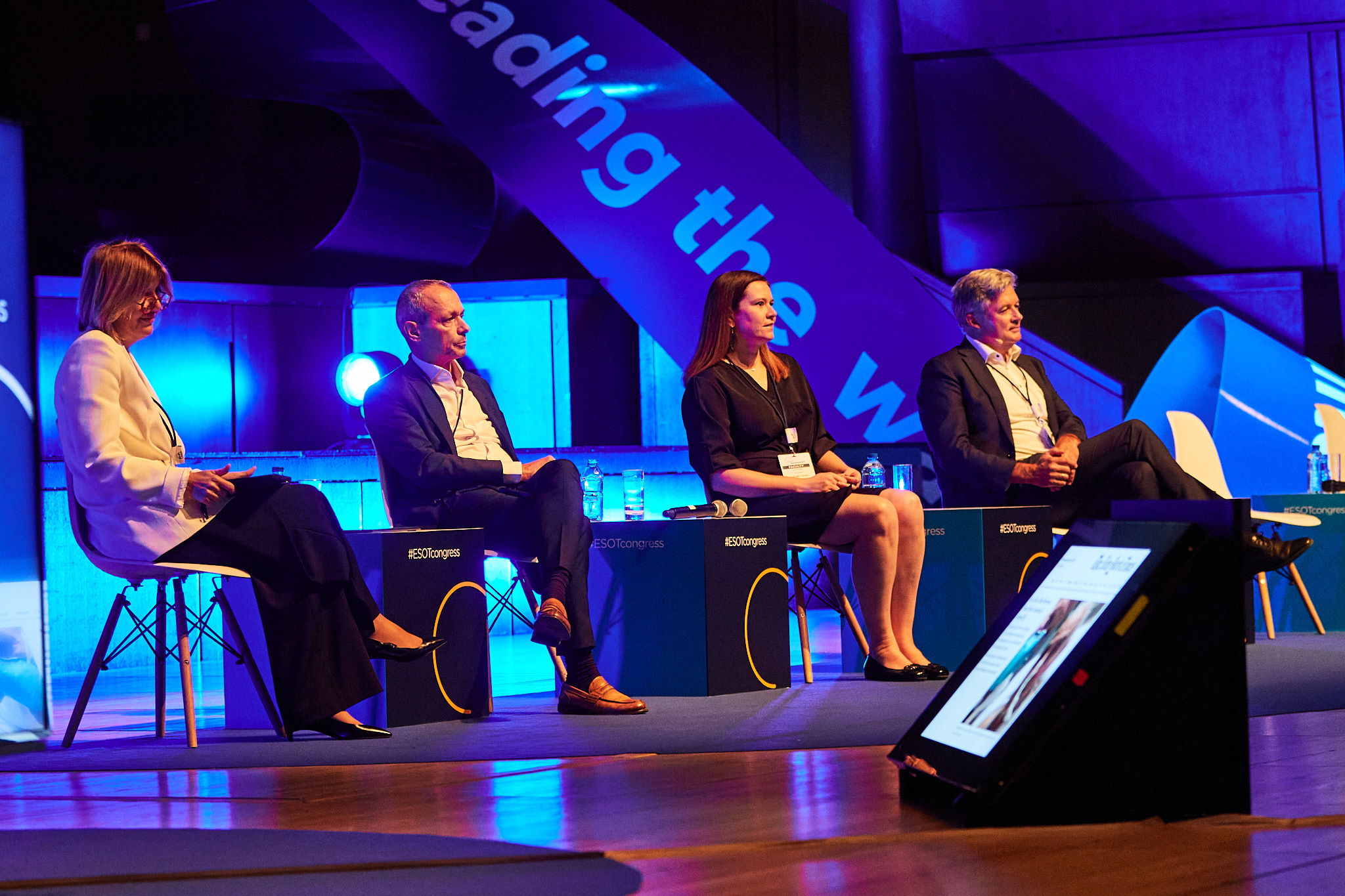
Young Greek Investigator Best Abstract Award
A new award to recognise a significant contribution by a young Greek investigator
The Young Greek Investigator Best Abstract Award is a new award which has been created to acknowledge the author of the best abstract submitted by a Greek national young professional (under 35 years old).
Last night, Georgios Eleftheriadis was recognised for his outstanding abstract titled, ‘Home and ambulatory blood pressure in kidney transplant recipients with and without telemedicine monitoring’ and received a prize of €1,000.
Congratulations to Georgios Eleftheriadis!
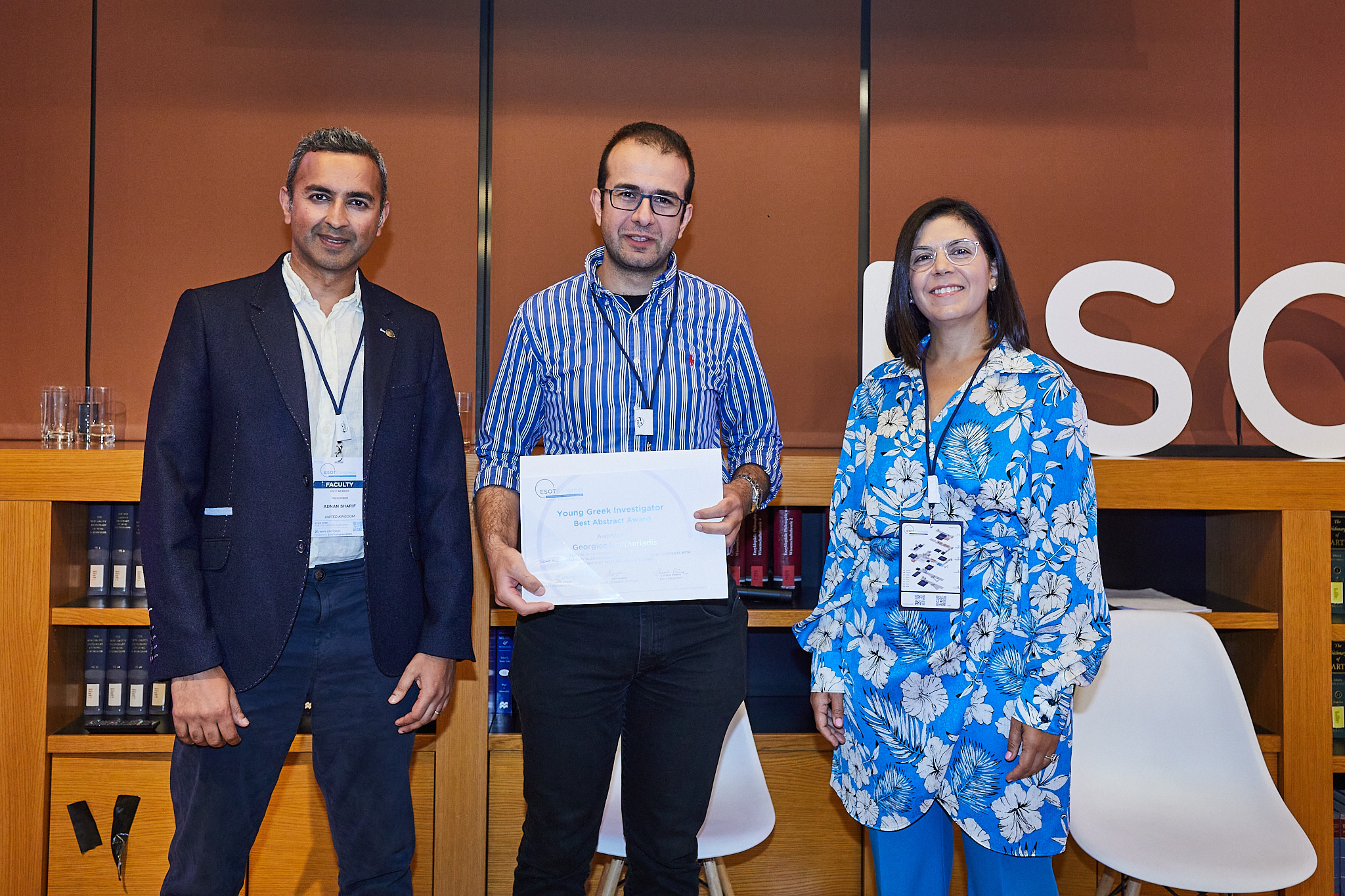
Thank you to our congress partners
We extend our heartfelt gratitude to our partners for their invaluable support which has played a pivotal role in making the ESOT Congress 2023 a resounding success. ESOT are deeply committed to improving the quality of life for patients with terminal organ disease by means of transplantation, organ regeneration and substitution, and we are glad to share this mission with our partners.
Collaboration remains at the heart of our approach, and we recognise the paramount importance of joining forces and uniting to achieve this mission. Together, we are dedicated to facilitating robust medical education for transplant professionals worldwide, fostering an environment of continuous learning and innovation. Our ultimate aim is to elevate transplant care standards for patients across the globe, and we couldn’t do this without the ongoing support from our partners.
Thank you for helping us create a brighter future for transplant patients around the world.
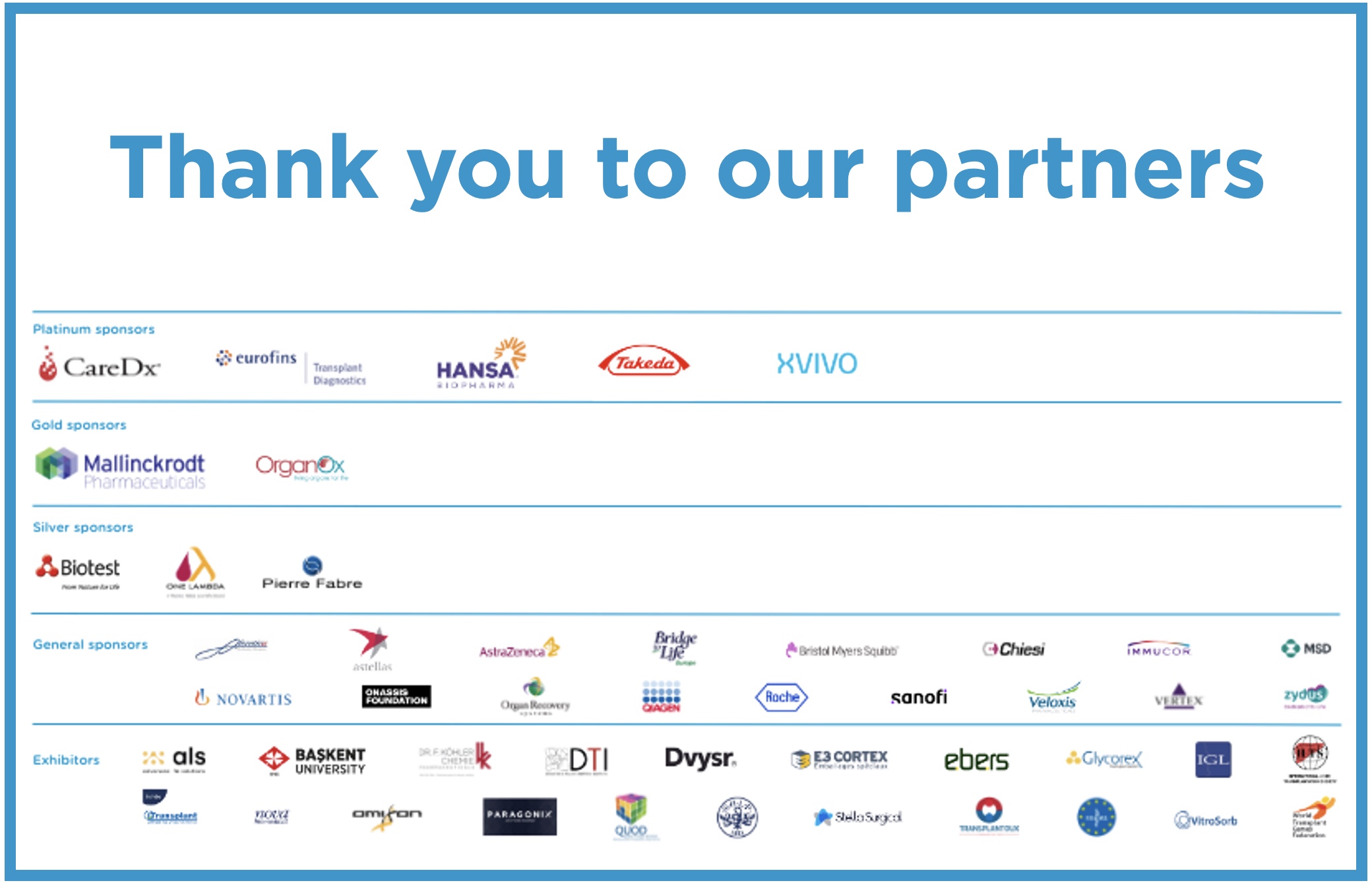
The ESOT Congress is heading to London!
So, what’s next? We hope to welcome you back to the ESOT Congress for our 2025 edition, when we will head to London to continue on our transplant journey!
Save the date: 29 June–2 July 2025
